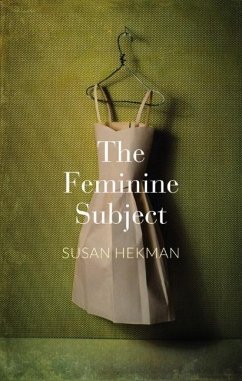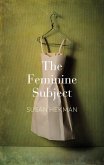In 1949 Simone de Beauvoir asked, "What does it mean to be a woman?" Her answer to that question inaugurated a radical transformation of the meaning of "woman" that defined the direction of subsequent feminist theory. What Beauvoir discovered is that it is impossible to define "woman" as an equal human being in our philosophical and political tradition. Her effort to redefine "woman" outside these parameters set feminist theory on a path of radical transformation. The feminist theorists who wrote in the wake of Beauvoir's work followed that path.
Susan Hekman's original and highly engaging new book traces the evolution of "woman" from Beauvoir to the present. In a comprehensive synthesis of a number of feminist theorists she covers French feminist thinkers Luce Irigaray and Helene Cixous as well as theorists such as Carol Gilligan, Carole Pateman and Judith Butler. The book examines the relational self, feminist liberalism and Marxism, as well as feminist theories of race and ethnicity, radical feminism, postmodern feminism and material feminism. Hekman argues that the effort to redefine "woman" in the course of feminist theory is a cumulative process in which each approach builds on that which has gone before. Although they have approached "woman" from different perspectives, feminist theorists has moved beyond the negative definition of our tradition to a new concept that continues to evolve.
The Feminine Subject is a remarkably succinct yet wide-ranging analysis which will appeal to all feminist scholars and students as well as anyone interested in the changing nature of feminism since the 1950s.
Susan Hekman's original and highly engaging new book traces the evolution of "woman" from Beauvoir to the present. In a comprehensive synthesis of a number of feminist theorists she covers French feminist thinkers Luce Irigaray and Helene Cixous as well as theorists such as Carol Gilligan, Carole Pateman and Judith Butler. The book examines the relational self, feminist liberalism and Marxism, as well as feminist theories of race and ethnicity, radical feminism, postmodern feminism and material feminism. Hekman argues that the effort to redefine "woman" in the course of feminist theory is a cumulative process in which each approach builds on that which has gone before. Although they have approached "woman" from different perspectives, feminist theorists has moved beyond the negative definition of our tradition to a new concept that continues to evolve.
The Feminine Subject is a remarkably succinct yet wide-ranging analysis which will appeal to all feminist scholars and students as well as anyone interested in the changing nature of feminism since the 1950s.








